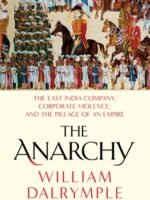Pakistan: A Hard Country by Anatol Lieven provides a comprehensive and nuanced understanding of Pakistan’s history, politics, and society. Drawing on his extensive fieldwork and firsthand experiences, Lieven examines the intricate dynamics that influence the country’s governance, from its military to its tribal regions. He explores the complexities of Pakistan’s identity, highlighting the tensions between tradition and modernity, the role of religion, and the challenges posed by corruption and political instability. Through a blend of personal insights and scholarly analysis, Lieven sheds light on why Pakistan remains a deeply challenging yet resilient nation in the modern world.
A Hard Country
₨999₨1,100
Pakistan: A Hard Country by Anatol Lieven offers an in-depth analysis of Pakistan’s political, social, and cultural landscape. Through extensive research and firsthand experience, Lieven explores the challenges and complexities that shape Pakistan’s identity and governance.
Related products
The End of India
₨899The End of India is a provocative and thought-provoking work by Khushwant Singh. In this book, Singh offers a candid and critical analysis of India’s socio-political landscape, focusing on issues such as communalism, corruption, religious extremism, and the fragmentation of the national identity. Singh reflects on the growing divisions within Indian society, both between communities and within the political system, and speculates on the consequences of these issues for the future of the nation. His writing is sharp, candid, and often controversial, offering a unique perspective on the challenges facing contemporary India.
₨1,190The Anarchy The East India Company Corporate Violence and the Pillage of an Empire
₨2,199William Dalrymple recounts the rise and fall of the East India Company, a corporation that conquered and exploited India. The Anarchy reveals how unchecked corporate greed and colonial violence reshaped global history, offering a cautionary tale of power and capitalism
₨2,495111 Muslim Science Daan
₨1,090This Urdu book highlights the contributions of 111 Muslim scientists throughout history. It celebrates their groundbreaking achievements in fields like astronomy, medicine, and mathematics, emphasizing their pivotal role in shaping the scientific advancements of the modern world.
Where Wizards Stay Up Late The Origins of the Internet
₨899Where Wizards Stay Up Late details the creation of the Internet, focusing on the pioneers behind the groundbreaking technology. Katie Hafner recounts the challenges, discoveries, and collaborations that led to the development of the world-changing network.
₨1,299Seasons of Silence
₨799Seasons of Silence by Mamun Adil is a poignant novel that explores themes of love, loss, and the passage of time. It follows the journey of a man struggling with his emotions, personal battles, and the silence of unspoken words.
₨1,000Lahore in the Time of the Raj
₨1,200This book explores Lahore’s transformation under British colonial rule, focusing on its urbanization, architecture, and the city’s social and cultural life. It examines both the British vision of Lahore as a colonial city and the experiences of its residents during this period. The book sheds light on the role of the city in the larger colonial context, with rich insights into its history, politics, and urban development.
₨1,500The Golden Road
₨999Dalrymple’s historical travelogue recounts his journeys through the Indian subcontinent, capturing the rich cultures, stories, and historical events that shaped the region. This book paints a vivid portrait of the people, places, and ancient pathways that form India’s soul.
₨1,299MEIN KAMPF
₨789Mein Kampf is Adolf Hitler’s autobiographical manifesto. Written during his imprisonment in the 1920s, it outlines his political ideology, views on race, and vision for Germany. The book remains a controversial historical document, studied for its insight into Hitler’s mindset.
₨1,200









